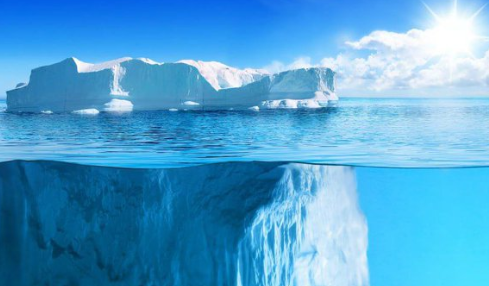Antarctica is undergoing a fascinating transformation as it sheds its immense ice load, causing the continent to rise from the ocean like a sponge expanding after being squeezed. This process, known as post-glacial uplift, is a key factor in determining the future of global sea levels, with potentially profound consequences for millions of people living in coastal regions. All of this is from computer models that have ALWAYS =been wrong, but let’s play along like these folks are correct.
As the ice melts, the land beneath it, once compressed by the weight of the glaciers, begins to rebound. This rise is happening much faster than scientists previously thought—within decades rather than thousands of years. New research led by glaciologists at McGill University and Ohio State University has revealed that the mantle beneath Antarctica is particularly squishy in some areas, allowing the land to bounce back rapidly.
One of Earth’s Continents Is Rising Up, And The Effects Could Be Huge https://t.co/8f11PomCys via @Yahoo
— OpineP 🌵 🌼🐾❤️☮️🌎🦀🐶🐱 (@OpinePinAZ) August 19, 2024
This rapid uplift could either mitigate or exacerbate global sea level rise, depending on our actions to curb fossil fuel emissions. If global warming is kept in check, the uplift might reduce Antarctica’s contribution to sea level rise by as much as 40%. However, if emissions continue unchecked, the scenario could be dire, with sea levels potentially rising by as much as 19.5 meters (64 feet) by the year 2500.
The key lies in the balance between the ice sheet’s retreat and the land’s rebound. If the ice melts faster than the land can rise, more water will be released into the oceans, accelerating sea level rise. Conversely, if the melt slows down, the rising land could lift the ice away from the warming ocean waters, preserving it for a longer period.
This phenomenon has significant implications, especially for low-lying coastal areas and islands, which are already experiencing the effects of rising sea levels. Islands like those in Kiribati, where most land is just a few meters above sea level, are particularly vulnerable. The people of South Tarawa, for instance, have been struggling to protect their homes from encroaching seas, only to see their efforts washed away by the relentless tide.
Do you know that 👇
If all the ice on Earth melts, the ocean level will rise by 70 meters.#facts #History pic.twitter.com/62yLsMKuFh— World history and Facts (@CrystalboyCfc) August 19, 2024
The researchers acknowledge that there is still much uncertainty, particularly due to limited data from West Antarctica. Moreover, the estimates don’t account for the ice loss in Greenland and other mountain regions, which could further complicate predictions.
To better prepare for the future, continued research is vital. Advancing our understanding of these complex processes is the only way to develop more accurate predictions, which in turn will allow us to take meaningful action to protect our planet.
As the Antarctic ice continues to melt (supposedly – as it seems to grow again in winter) , the rebound of the solid Earth offers a glimmer of hope. Reducing greenhouse gas emissions could amplify this natural defense, helping to preserve more of the Antarctic ice and prevent the worst impacts of climate change on global coastlines. Or so the Left says. They are always wrong, keep in mind, and since humanity has very little to do with actual climate change, all of their computer models for decades, that have been 100% wrong, continue to be 100% wrong. As their solutions are ALWAYS Marxism.
Key Points:
i. Antarctica’s ice melt is causing the continent to rise, a process called post-glacial uplift, which could significantly influence future global sea levels.
ii. Depending on how much fossil fuel emissions are reduced, Antarctica’s contribution to sea level rise could either decrease by 40% or drastically worsen.
iii. The land’s uplift can either help preserve the ice by lifting it away from warmer waters or lead to more water being expelled into the oceans.
Lap Fu Ip – Reprinted with permission of Whatfinger News



